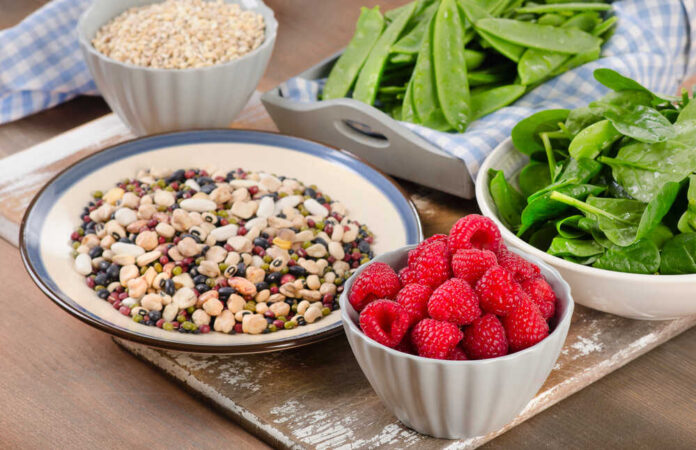
Sleep is crucial for our physical and mental health, yet many people struggle to get enough of it.
There are countless reasons for this, usually related in some way to stresses at home, work, or school.
But more and more research continues to emerge demonstrating that your diet also plays a huge role in the quality of your sleep.
One nutrient in particular that has recently been shown to help improve sleep is fiber.
What is Fiber?
Fiber is a common carbohydrate that cannot actually be digested by the body, but is essential for maintaining a healthy digestive system. It comes from the cell walls of plants, so we get our dietary fiber when we eat plant-based foods—fruits, vegetables, nuts, seeds, whole grains, and legumes.
There are two basic types of fiber:
● Soluble fiber dissolves in water to form a gel-like substance, which helps regulate digestion and absorb excess sugar in the blood.
● Insoluble fiber does not dissolve in water and helps regulate bowel movements and prevent constipation.
Both types of fiber are also known to have various health benefits, such as reducing the risk of chronic diseases and regulating blood sugar levels.
How Does Fiber Affect Sleep?
Recent studies have shown that fiber can help improve sleep quality in several ways.
Fiber helps regulate digestion and prevent constipation and other issues that may cause discomfort and interrupt sleep.
Additionally, fiber has been shown to help regulate blood sugar levels, which can also affect sleep quality. When blood sugar spikes and drops uncontrollably, your unstable energy levels can disrupt sleep. Fiber helps regulate blood sugar levels by slowing down the absorption of glucose into the bloodstream, preventing these spikes and dips in energy levels.
Furthermore, fiber can also help reduce stress levels and stress-related hormones (cortisol), which is another factor that can affect sleep quality.
Foods High in Fiber
There are many plant-based foods that are high in fiber, and incorporating them into your diet can help improve your digestion and sleep quality.
Some of these foods include:
● Fruits: such as raspberries, pears, apples, bananas, oranges, and avocados
● Vegetables: such as broccoli, spinach, carrots, Brussels sprouts, and sweet potatoes
● Whole grains: such as oats, barley, brown rice, quinoa, and whole wheat bread
● Legumes: such as lentils, chickpeas, black beans, kidney beans, and navy beans
● Nuts and seeds: such as pistachios, almonds, sunflower seeds, chia seeds, and pumpkin seeds
It is generally recommended to aim for at least 25 grams of fiber per day for women and 38 grams per day for men.






















